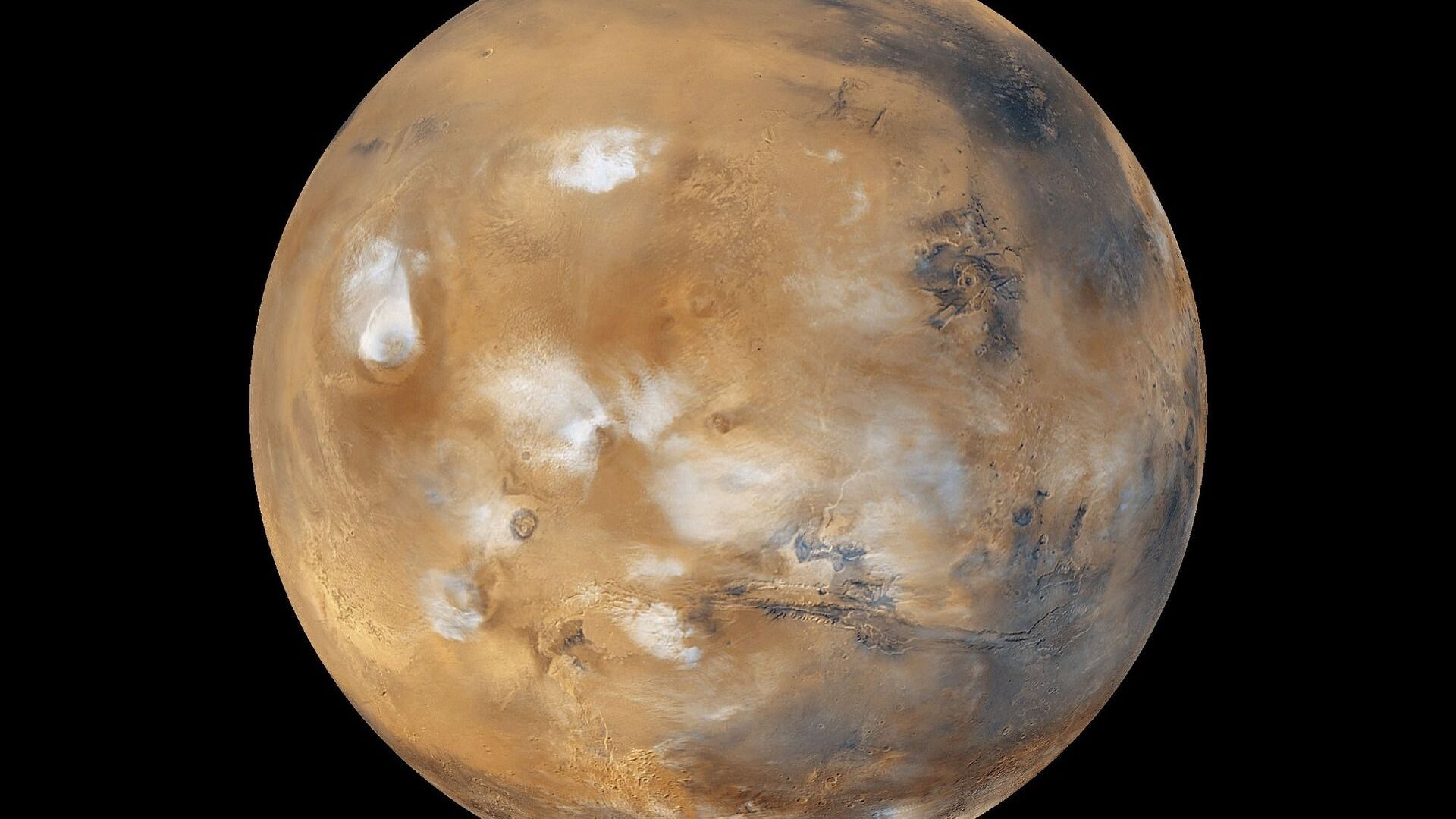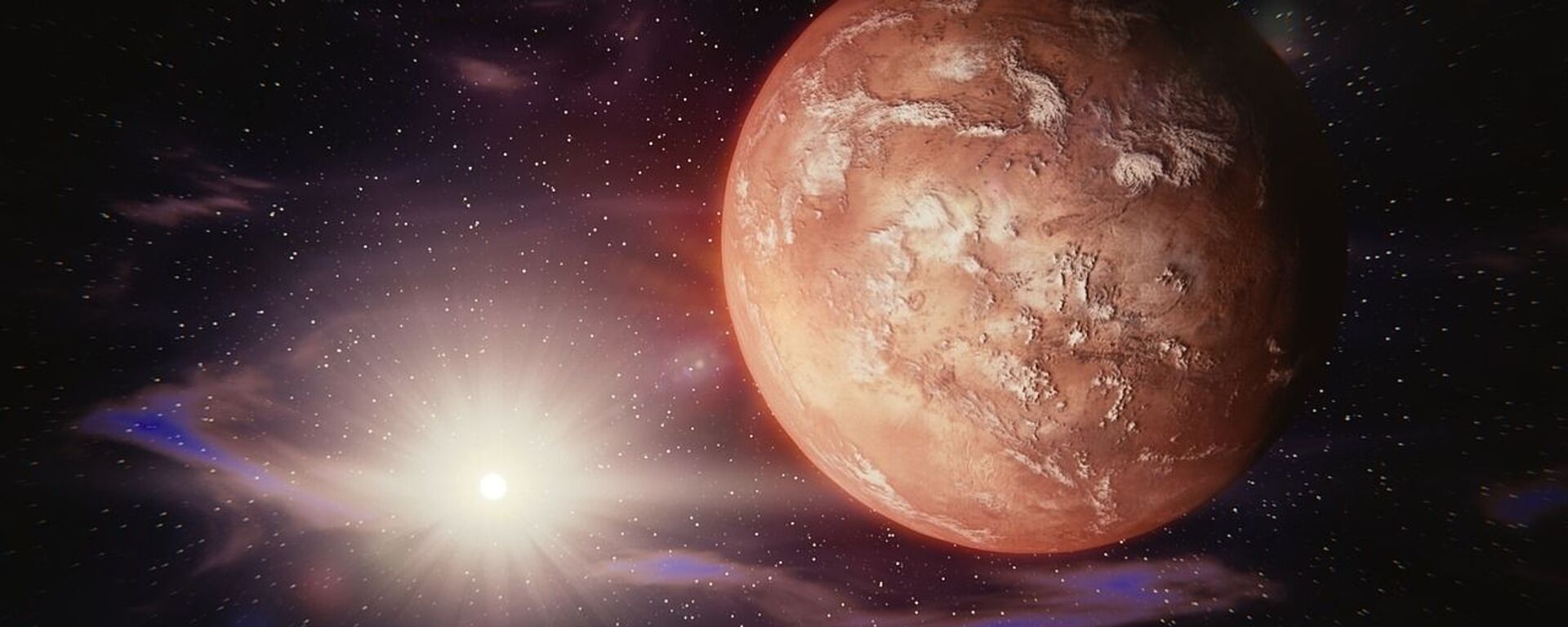https://sputnikglobe.com/20221012/microbial-lifeforms-likely-thrived-on-mars-in-ancient-past-scientists-say-1101780314.html
Microbial Lifeforms Likely Thrived on Mars in Ancient Past, Scientists Say
Microbial Lifeforms Likely Thrived on Mars in Ancient Past, Scientists Say
Sputnik International
If these microbes did exist on Mars, however, their unique “eating habits” likely played a major role in the Red Planet becoming much cooler than it supposedly... 12.10.2022, Sputnik International
2022-10-12T18:41+0000
2022-10-12T18:41+0000
2022-11-30T10:10+0000
science & tech
microbes
climate
study
mars
https://cdn1.img.sputnikglobe.com/img/107950/95/1079509510_0:253:1920:1333_1920x0_80_0_0_2cabe75cee45076a591fcff5ce7337f4.jpg
The apparently barren lifeless planet that is Mars nowadays might have harbored microscopic life at some point in the distant past, researchers from France postulate.However, if they did exist, they were likely responsible for Mars turning into the desolate wasteland, with the study’s lead author Boris Sauterey, a post-doctoral researcher at Sorbonne University, saying that life “might actually commonly cause its own demise”, according to AP.During the course of their research, Sauterey and his team sought to use climate and terrain models to evaluate Mars’ habitability about 4 billion years in the past when it supposedly had water.The researchers concluded that, just like on early Earth, microbes that fed on hydrogen and produced methane likely thrived in the upper layer of the Martian soil.However, the supposedly warm and moist climate of the early Mars would have been jeopardized by these very microorganisms, as them sucking hydrogen out of the planet’s thin atmosphere would have plunged the planet into an ice age, with temperatures dropping by nearly minus 200 degrees Celsius.Noting that their findings may appear “a bit gloomy”, Sauterey said he believes they are also “very stimulating”.“They challenge us to rethink the way a biosphere and its planet interact,” he said in an email cited by AP.
https://sputnikglobe.com/20220519/new-study-of-martian-meteorite-casts-doubt-on-life-existing-on-red-planet-in-distant-past-1095639441.html
mars
Sputnik International
feedback@sputniknews.com
+74956456601
MIA „Rossiya Segodnya“
2022
News
en_EN
Sputnik International
feedback@sputniknews.com
+74956456601
MIA „Rossiya Segodnya“
Sputnik International
feedback@sputniknews.com
+74956456601
MIA „Rossiya Segodnya“
science & tech, microbes, climate, study, mars
science & tech, microbes, climate, study, mars
Microbial Lifeforms Likely Thrived on Mars in Ancient Past, Scientists Say
18:41 GMT 12.10.2022 (Updated: 10:10 GMT 30.11.2022) If these microbes did exist on Mars, however, their unique “eating habits” likely played a major role in the Red Planet becoming much cooler than it supposedly was before.
The apparently barren lifeless planet that is Mars nowadays might have harbored microscopic life at some point in the distant past, researchers from France postulate.
However, if they did exist, they were likely responsible for Mars turning into the desolate wasteland, with the study’s lead author Boris Sauterey, a post-doctoral researcher at Sorbonne University, saying that life “might actually commonly cause its own demise”, according to AP.
During the course of their research, Sauterey and his team sought to use climate and terrain models to evaluate Mars’ habitability about 4 billion years in the past when it supposedly had water.
The researchers concluded that, just like on early Earth, microbes that fed on hydrogen and produced methane likely thrived in the upper layer of the Martian soil.
However, the supposedly warm and moist climate of the early Mars would have been jeopardized by these very microorganisms, as them sucking hydrogen out of the planet’s thin atmosphere would have plunged the planet into an ice age, with temperatures dropping by nearly minus 200 degrees Celsius.
Noting that their findings may appear “a bit gloomy”, Sauterey said he believes they are also “very stimulating”.
“They challenge us to rethink the way a biosphere and its planet interact,” he said in an email cited by AP.


